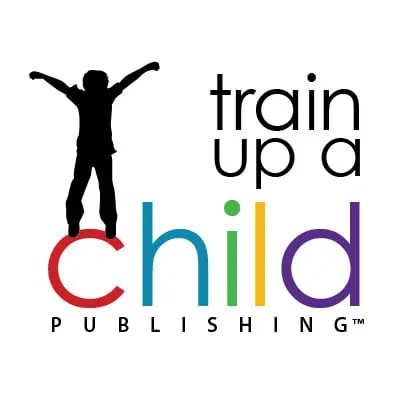10 Tips for Teaching a Reluctant High School Writer – part 2

Do you have a high school writer that doesn’t like to write? Here’s part 2 of our 10 tips for teaching a reluctant high school writer!
If you missed the first post with tips 1-5, read it here. (Actually, no matter how old your reluctant writer is, several tips from # 1-5 apply!)
Continuing now with tips # 6-10 in teaching a reluctant high school writer to write.
These next tips relate specifically to high school writers, although if you have an 8th grader you might try a few of them now.
Here we go:
6. Ask for your reluctant high school writer’s help.
I know this sounds odd, particularly for a reluctant writer. However, when a student perceives himself as needed, it builds confidence. Try asking your high school student to help out. You’re obviously busy, so maybe your high schooler could read and edit a short assignment from a younger sibling, or even something you’ve written.
Obviously, you don’t want to ask your students to do something that is way beyond their ability. So be sure you’ve worked through basic self-editing skills first.
And if your student is reading a younger sibling’s work, make sure s/he is editing a copy. Go over the paper with your high school student and let him tell you what he thought was wrong and how he’d fix it.
(And then YOU go over it with your younger student — but don’t feel as though you have to pass on everything if there are a lot of errors. Work on one or a few areas at a time with younger writers instead of throwing everything at them at once!)
I make this suggestion because students who edit younger children’s (less complicated) writing find it easier to see the mistakes, helping them build their own writing skills. Although editing is a different skill than writing, it’s not uncommon for a reluctant writer to understand how writing should look or sound. (Even if he’s not so excited about writing.) And again, the more editing practice, the better the writing skills later.
7. Be novel – try “paired writing” with your high school writer (pun intended)
Consider writing projects or paired writing. Often high school students will contribute more and gain more confidence if they are not writing alone. Discuss this with your student prior to making any decisions. If your student is adamant about not wanting to write with another student or sibling, don’t push it.
In our experience, however, most students feel less pressure when more than one person is involved, especially if they’re writing with another student.
8. Next, teach your reluctant high school writer the 5 basic essay types.
The basic high school essay styles (expository, narrative, persuasive, comparison/contrast, and descriptive) are vital for high school students to master. Take your time and work on them over a period of a year, if you need to. Preferably, your student’s ninth-grade year.
Alternatively, you could work on high school essay writing for one semester or even during the summer.
In fact, this student derived great pleasure in college by passing along a comment from an English professor who had commended him for writing on the same level as a graduate student! Who would have thought?!
Take courage, Mom!
9. If possible, have your student complete two research papers during high school.
Research papers are a fact of high school life. The great thing about a research paper is that you break it down into smaller components and work on it a little at a time. And you don’t have to make the first one a semester long project. You may choose to start smaller, perhaps assigning your high school writer to write a five page research paper.
Most students take a semester to write a long paper, but for a reluctant writer, it could take a little longer. There are no rules about how long it should take, but ideally, a college-bound high school student should have two research papers under his belt by graduation.
If you’re teaching a reluctant high school writer, the topic will make all of the difference. (See tip #2 in this post!) With your student(s) first research paper, most definitely allow them to select the topic. You may want them to give you a list of possibilities and you help narrow it down, but it should be something your student loves to talk or read about to make this first research paper something interesting to learn about.
Again, keep the first assigned research paper about seven to ten pages. The second could be 15-20+. But YOU can decide the length based on your high school student and the availability of research available on the topic you assign/they choose.
Reassure your student that there will be PLENTY of time to get the paper finished, because you’ll help break it up into smaller parts with deadlines throughout the semester or year.
Then stick with those deadlines as much as possible. (Meeting deadlines is another vital skill for your high school student to learn!)
If there is an issue keeping the deadline, please don’t let it be because you didn’t have something graded on time. I know it’s hard keeping up with everything, Mama. But try to carve out time to grade your high school writers’ papers in a timely way.
Nothing is more discouraging to a student than telling him his commitment to his work and your deadline is critical, but then making him wait days for you to evaluate his work. Consider grading each segment of the process, because there is less pressure with multiple grades than one major grade.
Once your student is familiar with the research paper format by writing one on an interesting topic, try to fit in a second paper. Tackling a more academic topic at this point would be fine. If you could use some help teaching the research paper format, we have a course for that.
10. Look into outside writing courses.
Sending reluctant writers to a writing class may seem odd for students who are already insecure about their abilities. Actually, though, we’ve found that sometimes male students, in particular, respond better in a structured, class setting. They often work harder because they don’t want to look bad in front of their peers! (Whatever works!)
Whether you teach your student yourself or find another instructor, know that reluctant writers tend to achieve more with teachers who have a sense of humor and are encouraging, without allowing the student to deviate from the course. Grace and understanding when a student is struggling, balanced with accountability, is not always an easy combination of traits to master, but definitely worth the effort.
Particularly If your relationship with your reluctant writer is strained over writingt, consider finding another writing teacher for a season, at least. Make sure to discuss the issues with the instructor ahead of time.
Teaching a high school student is truly a sacrificial act for many parents. When that student is a reluctant writer, the jewels on the crown increase exponentially! Just remember that this is only one aspect of your student. And you both will make it through with prayer, patience, practice, and time. God bless and know that the fruit of your labor will not go unnoticed!
Don’t forget to go back to read the first five tips here.
Are you struggling this year with a reluctant high school writer? Which of these tips might help? If you need more support, consider using a more homeschool mom-friendly writing curriculum.
Happy Writing!




